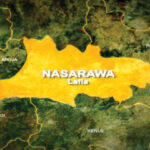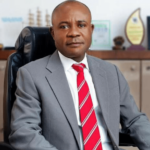
At no time in the past has the future of Nigeria’s unity and corporate existence been so questioned and contested by different Nigerian groups than now. The IGALA People, without fear of contradiction, support the unity and continued existence of Nigeria as a corporate entity. This support is premised on a number of factors and considerations which derive from our lived experience within the Nigerian federation. We do so at least on three grounds as follows: i. Apart from being one of the few autochthonous ethnic nationalities ever to occupy the geographical area called Nigeria, the Igala are located in central Nigeria. The implication of this is that, we are located at the confluence of several cultures and identities, not only incorporating and absorbing other ethnic identities over time, but are scattered among several other ethnic communities across Nigeria. For this reason, we cannot be indifferent to ill-advised attempts to dismember Nigeria; ii. As one of the minority nationalities who believe in the ultimate destiny of Nigeria as a country, the blood of hundreds of Igala sons was sacrificed in the fratricidal war to keep Nigeria’s unity; iii. Our believe in the potentials of diversity as the building block of national greatness and that making appropriate adjustments in our current federal system can truly take the country to that greatness. After all, the great nations of the world today are not necessarily the most homogenous ones.
However, in declaring our unflinching support for Nigeria’s unity, we reject the assumption that Nigeria’s unity should be taken for granted. It is a unity that must be ingrained on the principles of equity, justice and fairness, and in which all nationalities, big and small should be allowed to attain the highest level of economic, political and cultural development. The Igala nation is therefore in support of reforming our federal system in such a way that accommodates the principle of self-determination without compromising national unity based on a strong national government.
Among others, we would like to shed light on two elements of the reform of the federal system that approximates our sense of justice to the Igala people. First, in recognition of the persistent struggle for Okura Stsate since the Second Republic in 1981 based on the principle of self-determination, we request that genuine demand for new states such as Okura should be revisited and created in line with procedures laid down in the 1999 Constitution without further delay.
A related vision held by us for a healthy and balanced federation as the bedrock of Nigeria’s unity is giving communities unfettered opportunity and access to their natural resources for wealth generation and overcoming poverty and want. We are therefore dismayed that in the age of clamour for resource control and entrenching community control over resources based on abiding respect for the principle of fiscal federalism, licenses for prospecting and mining of solid minerals located on Igala soil have been given out to other Nigerians with “connections” and wealth. It is this kind of callous indifference, neglect and lack of sensitivity to the feelings of local communities that fuels sentiments that work against national unity and coherence.
The point being made here therefore is that, while we are uncompromising in our support for the unity of Nigeria, we urge Nigerians to understand that the agitations across Nigeria reflect the widely shared perception that the Nigerian project is not working and that these are symptoms of deep-seated failure, especially the failure of nation-building and the inability of successive Nigerian leadership to create a truly united country based on the principles of justice, fair play, democracy and the rule of law. Concerted efforts are therefore required to address these grievances for the benefit of all including the Igala nationality.
On the restructuring of Nigeria, we have a clearly articulated position, and this is closely tied to our vision of Nigeria’s unity and national integration. Interestingly, there is nothing new about this so called restructuring; it has always evolved since Nigeria achieved political independence in 1960. That Nigeria today is a 36-state federal structure as opposed to the three regions created before independence and one more region before the end of the First Republic shows that some restructuring took place. It is also true that the effect of this restructuring is that unlike the situation before the end of the first Republic in which the regions were more powerful than the centre, we now have a stronger federal centre where the states which are the federating units are weaker in terms of political power and revenues. And yet, the states are closer to the people as the nodal point of development. We strongly believe that while there is no such a thing as “true federalism” it is an anomaly in many federal systems that states and regions are too feeble to be unable to address the developmental needs of the people. The goal of restructuring should be to address this anomaly.
We therefore reject proposal for restructuring Nigeria which takes us back to the idea of regionalism as if we are so forgetful about the ugly experiences of the First Republic. Regional governments in the First Republic squeezed and emasculated the minority ethnic nationalities in the North, West and East, and the bitterness associated with the report of the Willink Commission which rejected the quest of minorities for separate states did not die until the premature collapse of the Republic. So far, many minority groups have been “liberated” by states creation. As a minority, the Igala people hereby reject return to regionalism in the guise of political restructuring which appears to be more suitable to ethnically homogenous groups in Nigeria.
Our proposal on restructuring is in tandem with the recommendations of the 2014 National Conference for decentralization of power in favour of the states. This will entail a far-reaching review of the long exclusive legislative list containing 68 items and bringing under concurrent legislation issues such as solid minerals and several others on which states can competently legislate. This will necessarily involve a review of revenue sharing among the three tiers of government in favour of the states to ensure that increased responsibilities are matched with resources to overcome the fear of states that may not be considered economically viable.
Major General Patrick Akpa (Rtd) is the National Leader, Ukomu Igala Organization, an umbrella body for all socio-political groups in Kogi East.

 Join Daily Trust WhatsApp Community For Quick Access To News and Happenings Around You.
Join Daily Trust WhatsApp Community For Quick Access To News and Happenings Around You.

